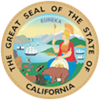
News Release
California Department of Food and Agriculture
Media Contacts: Steve Lyle, CDFA Public Affairs, (916) 654-0462,

ADDITIONAL BOVINE TUBERCULOSIS-AFFECTED HERDS DETECTED IN CALIFORNIA
Public health not threatened; state prepares for disease status downgrade
SACRAMENTO, June 24, 2008 - The California Department of Food and Agriculture (CDFA) and the United States Department of Agriculture (USDA) have confirmed the detection of bovine tuberculosis in two more dairy herds in Fresno County. A single cow in each of these two additional herds was confirmed positive, bringing the current total number of herds affected to three. USDA is beginning the process to officially downgrade California’s bovine tuberculosis status from “Accredited Free” to “Modified Accredited Advanced.”
CDFA and USDA personnel continue to spearhead the effort to eradicate bovine tuberculosis from California’s cattle. CDFA and USDA veterinarians and animal health professionals from across the State and nation are helping with the effort. Since bovine tuberculosis was first detected in January 2008, more than 105 herds and over 150,000 cattle have been tested as part of the investigation.
The drop in status is required by the USDA’s Code of Federal Regulations following the detection of two affected herds within 48 months. It will impose additional testing requirements on California’s cattle industry when shipping animals out of state. CDFA animal disease control experts are working with USDA to evaluate dividing California so that part of the state could return to a “TB Free” status while intensive disease eradication efforts continue in the affected area of California.
California regained its Bovine Tuberculosis Accredited-Free status on April 15, 2005 two years after losing its status due to an outbreak in Kings and Tulare counties. Following the detection of bovine tuberculosis in 2003, over 876,000 cattle from 688 herds were tested in California to make sure the disease had not spread beyond the three detected dairy herds. New rules were also put in place requiring that dairy breeding cattle entering California be tested to help prevent reintroduction of the disease - this rule remains in effect.
Bovine tuberculosis does not threaten the quality and safety of milk and meat products produced in California. Almost all milk sold in California is pasteurized, which destroys organisms that could be harmful to humans, including tuberculosis organisms. The state’s two raw milk dairies are regularly tested for tuberculosis. All cattle processed for meat are inspected for signs of tuberculosis infection and rejected for consumption if they show signs of the disease.
The best way for cattle producers to prevent bovine tuberculosis is to maintain a closed herd or isolate and test purchased additions and cattle re-entering the herd, maintain accurate records of animal identification and movements, prevent contact with cattle of unknown tuberculosis status, arrange professional diagnostic workup of sick animals, and establish a tuberculosis testing policy for employees.

1220 N St., Ste. 214, Sacramento, CA 95814
916-654-0462, www.cdfa.ca.gov